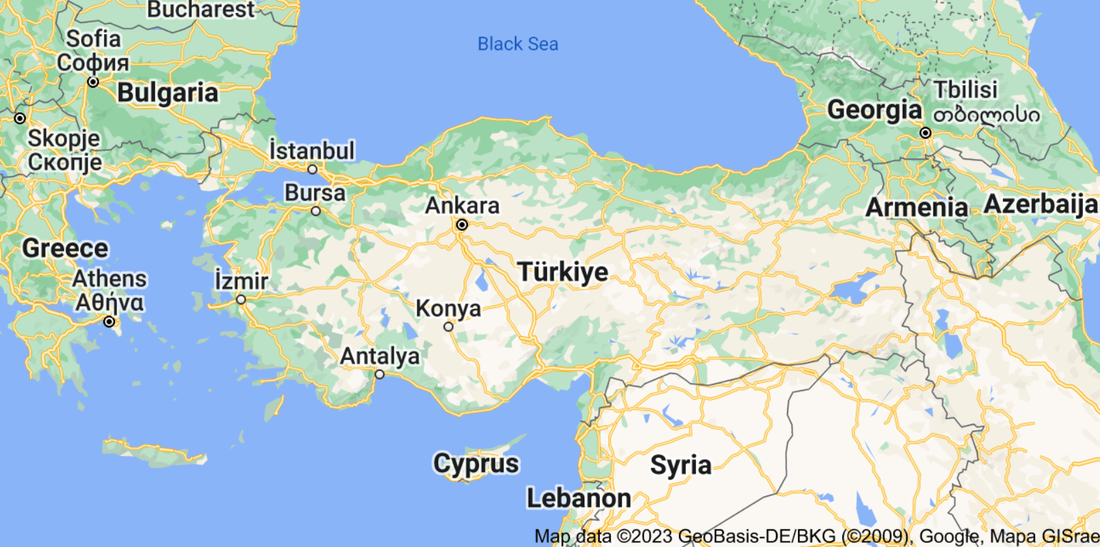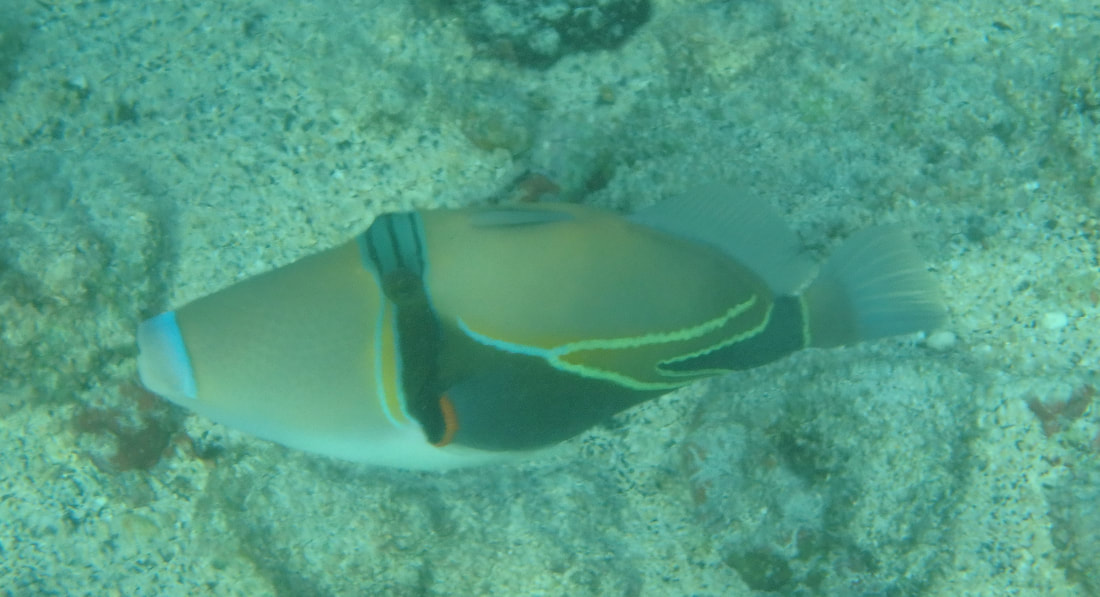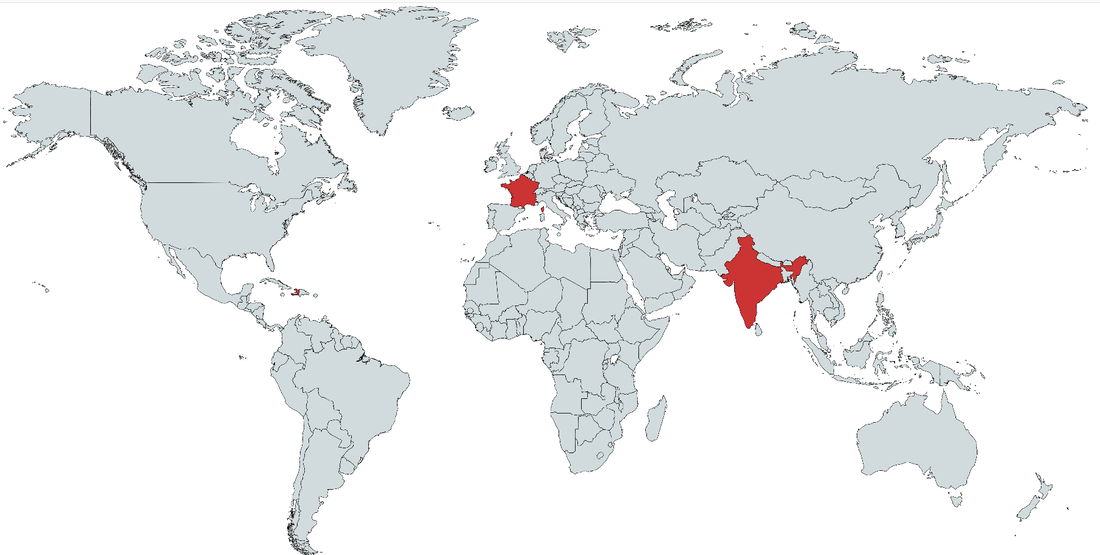|
Today, more than 60% of the world's French speakers -- and more than 80% of the children studying in French -- live in Africa. This map shows the countries in Africa in which at least 10% of the population speaks French. (Map from www.nytimes.com/2023/12/12/world/africa/africa-french-language.html.)
0 Comments
One of my classes was learning about language geography this week, and I happened to see this geo-graphic from The Economist (UK) that sorts the world's major languages by the length of time it takes an English speaker, working full time to learn the language, to achieve "general professional proficiency." The languages outlined in red are among the world's 10 most widely spoken languages. (Geo-graphic from www.economist.com/graphic-detail/2023/09/18/which-languages-take-the-longest-to-learn.)
Cantonese is the primary language of southern China, including Hong Kong, and Cantonese has been a tool for anti-regime satire and solidarity since the 2019 protests in Hong Kong. This article from Quartz looks at Beijing's attempts to crackdown on Cantonese publishing outlets and promote the teaching of Mandarin in Hong Kong's schools: qz.com/hong-kong-s-new-public-enemy-the-cantonese-language-1850780591
The U.S. Department of State and Google Maps are now on board with Turkey's request to spell the name of the country "Türkiye." (To make the necessary ü in Word, use control-: and then the u.)
India has more linguistic diversity than all of Europe put together: recent research shows at least 780 languages are spoken across India. This article highlights the work being done to document these languages and the political dimension of doing so while India's Hindu-nationalist BJP government is trying to make Hindi the country's national language. www.nytimes.com/2022/06/11/world/asia/india-languages-ganesh-devy.html
Modern Ukraine's language geography reflects czarist and Stalinist policies of Russification in Ukraine -- deporting ethnic Ukrainians and Tatars for perceived disloyalty and giving land to ethnic Russians -- as well as more recent Russian incursions into what is labeled on this map as "separatist-controlled areas." (Map from www.washingtonpost.com/world/2022/01/21/ukraine-russia-explain-maps/.)
Today is celebrated as Indigenous Peoples' Day in a growing number of U.S. communities. This map shows the region of the Great Lakes -- or, as the indigenous residents referred to them, the Five Freshwater Seas -- in Ojibwe. The map puts east at the top rather than north to reflect the traditional east-first orientation of the Anishinaabe. decolonialatlas.wordpress.com/2015/04/14/the-great-lakes-in-ojibwe-v2/
Interested in learning a bit of a new language this summer? The Live Lingua Project, founded by a former Peace Corps volunteer, is a repository of free lessons in more than 150 languages spoken around the world! www.livelingua.com/project/
According to U.S. Census data, more than 20% of the U.S. population speaks a language other than English at home. Over the last decade, the fastest-growing major language in the U.S. has been Telugu, a language native to the region of southern India shown in red on this map (which corresponds to the Indian states of Telangana and Andhra Pradesh). The major Telugu-speaking city of Hyderabad is one of India's major technology hubs, and the region sends thousands of engineers and other STEM professionals to work and study in the U.S. every year. (Microsoft CEO Satya Nadella, for example, grew up speaking Telugu in Hyderabad.)
upload.wikimedia.org/wikipedia/commons/thumb/3/3c/Language_region_maps_of_India.svg/480px-Language_region_maps_of_India.svg.png Spoken Arabic varies widely across the Arabic-speaking world, with some dialects all but unintelligible to each other. This Reddit map shows the dominant Arabic dialects across North Africa and the Middle East.
www.reddit.com/r/MapPorn/comments/extcfh/map_of_different_arabic_dialects_from_the_arab/ When students in my online modern drama class read Pygmalion, they learn how our accents and word choices can identify our geographic origins and influences. Taking this quiz from The New York Times will show where in the U.S. people are most (and least) likely to talk like you do. www.nytimes.com/interactive/2014/upshot/dialect-quiz-map.html
One last photo instead of a map. This is the Hawaiian state fish, known in English as the reef triggerfish. In Hawaiian, its name is humuhumunukunukuapua'a. The Hawaiian language was oral, not written, until missionaries arrived in the islands in the early 1800s and used English letters to capture Hawaiian sounds. It turns out that the Hawaiian language employed only 12 sounds: the five vowels plus seven consonants (h, k, l, m, n, p, and w). Not surprisingly, many Hawaiian words transcribed into English are long and, to outsiders, look confusingly similar. The Hawaiian language is related to languages spoken elsewhere in Oceania, including Tongan, Maori, Samoan, and Tahitian. (Politically, Hawaii may be part of the United States, but geographically it is actually part of Oceania.)
This map, assembled by Business Insider based on U.S. Census data, looks at the language most commonly spoken at home, other than English or Spanish, in each state. In Hawaii, that language is Ilocano. Previously, it was Tagalog. Students who have taken my "Your Future World: Human Geography 2050" class may recognize both Tagalog and Ilocano as languages spoken in the Philippines. image.businessinsider.com/5d07a1e16fc920279f04aea5?width=1600&format=jpeg&auto=webp
With Ukraine in the news regularly, it seemed appropriate to understand something about the human geography of Ukraine.
image.businessinsider.com/53121ecc69bedd4c2ff07872?width=1100&format=jpeg&auto=webp Those interested in the philosophy of language may enjoy this provocatively titled article "Do Languages Exist?" from Philosophy Now (UK):
"Languages seem an important feature of our lives. The languages we speak determine who we can communicate with, where we can work, and what we can read or listen to. Languages are also political. For instance, recent years have seen laws requiring migrants to the UK to learn English. An apparent decline in numbers of Welsh speakers led to calls for government money to be spent on Welsh language promotion. Kiev saw rioting in 2012 in response to moves to allow the Russian language, rather than Ukrainian, to be used in public institutions. Given the powerful role that languages play, it is perhaps surprising that some thinkers claim that such languages do not actually exist. ... "[A]lthough at first sight it seems simple to identify different languages as ‘English’, ‘Welsh’, and so on, on closer examination, our way of dividing linguistic phenomena into so-called ‘languages’ seems arbitrary. To use [American linguist Noam] Chomsky’s example in Knowledge of Language (1986), Dutch and German are traditionally treated as separate languages. However, some German dialects are closer to Dutch than to other German dialects, with which they are not mutually intelligible. Thus, our standard way of dividing different forms of speech into ‘Dutch’ or ‘German’ does not capture any real aspect of the world, but arbitrarily groups together linguistic phenomena. ... [S]ome folks believe that the phenomenon of human language is best understood not as a series of languages like English or Welsh, but as a series of idiolects. An idiolect is the language of one individual. A description of one person’s idiolect includes all the vocabulary and grammatical features of that individual’s personal way of speaking (or writing). Their idiolect is an independent, self-contained system. ... This view holds that individuals’ idiolects, as opposed to mass languages like English, are the only form of language that exists. ... Of course, there are similarities between idiolects. For instance, most people living in Germany use idiolects similar to those of other German residents. However, there is no such thing as ‘the German language’; only overlapping independent idiolects. ... "One alternative to the idiolectal view sees a language as a social convention. ... Take the convention of driving on the left-hand side of the road. This convention, which existed long before it was written into law, arose for obvious practical purposes, such as preventing crashes. [The late Princeton philosopher David] Lewis notes that this convention only functions because all British, Australian, etc drivers recognise that it is in force, follow it, and expect and hope that others follow it too. Of course, they could equally well have followed the French and American convention of driving on the right to achieve the same ends. However, once a convention is in place, it often remains that way for as long as it is generally useful. A language, Lewis argues, is established and maintained in a similar way. Take the English expression “It’s raining.” The convention that we utter “It’s raining” only when we believe that it is raining exists for useful communicative purposes. Of course, for the convention on this use of sounds to work, we all have to recognise that it is in force, follow it, and expect and hope that others follow it too. ... On this ‘public language’ view, English, Welsh, and other languages, can be seen as complex systems of conventions. The conventions arise and endure because they solve coordination problems between individuals in a society. Thus, a language is essentially interpersonal. In contrast to the idiolectal view, a language cannot be regarded as a system confined to one individual." philosophynow.org/issues/100/Do_Languages_Exist What do France, Haiti, and India (shown in red on this map) have in common? Liberté, égalité, and fraternité (or liberty, equality, and fraternity or brotherhood). "Liberté, égalité, fraternité" is the national motto of both France and Haiti. The English equivalent features prominently in the preamble to the Indian constitution. The phrase has its origins in the French Revolution, which will be marked in France by Bastille Day tomorrow.
This map, based on 2017 Census data, shows the most common language, other than English or Spanish, spoken in each of the 50 states: www.businessinsider.com/what-is-the-most-common-language-in-every-state-map-2019-6
As students in my "Your Future World" class come to learn, it is not always easy to determine how to refer properly to the leader of another country, for example, by surname. This map, assembled by a Reddit user, looks at naming traditions across Europe, Asia, and North Africa. www.reddit.com/r/MapPorn/comments/c14fha/naming_traditions_across_the_world/
This map highlights where Arabic is spoken as the primary or secondary language: www.reddit.com/r/MapPorn/comments/bhim2x/the_arabic_speaking_world_1280772/
Is it "tea" or "chai"? Your answer likely depends on where you encountered the item and the path the word (and the item) originally took to that location. This map traces the language geography of various agricultural products. www.visualcapitalist.com/mapping-words-along-trade-routes/
The way Americans pronounce the name of a country or a city is often quite different from the way the locals pronounce it. Although intended to be a bit tongue-in-cheek, this map actually provides quite accurate phonetic descriptions of how to pronounce each European capital in the dominant native language. jakubmarian.com/pronunciation-of-european-capitals/
One of the things students in my "Hands-On Geography" classes learn is that what we call countries is very often not the same as what those countries call themselves. The country we call "Germany," for example, calls itself "Deutschland." This map looks at what other European countries call Germany:
www.reddit.com/r/MapPorn/comments/azkwfj/names_for_germany_in_europe/ Many people think South America is a sea of Spanish with the exception of Portuguese-speaking Brazil. This map paints a more complex picture, with English (Guyana), Dutch (Suriname), and French (French Guiana) along the northeast coast and significant pockets of indigenous languages. sblanguagemaps.files.wordpress.com/2012/11/samerica11.png
This map looks at the dominant language in which business is conducted in Africa, by country. [While this largely reflects historical patterns of colonization, as students in my "Your Future World: Human Geography 2050" learn, it is not unusual to find that a country's most widely spoken language(s) may differ from the language of that country's business (and higher education) community.]
preview.redd.it/pqu5kcyr4c421.png?width=640&crop=smart&auto=webp&s=e3a980937f44b21a6fa77fdefc967d5ae262c2d9 If nothing else, this map that provides a literal "translation" of each country's name may spur further research and conversation: blogs.forbes.com/duncanmadden/files/2018/03/Literal-Translation-of-Country-Names.jpg
|
Blog sharing news about geography, philosophy, world affairs, and outside-the-box learning
Archives
December 2023
Categories
All
|



 RSS Feed
RSS Feed